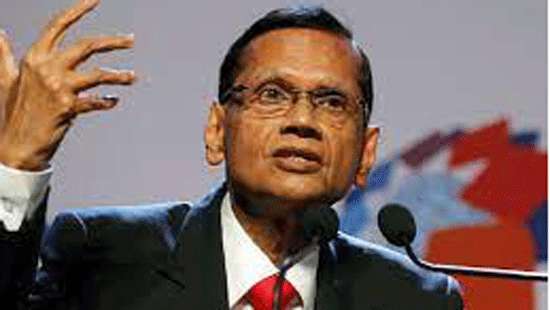Reply To:
Name - Reply Comment

Sri Lanka , once again , rejected the evidence gathering mechanism established by the UNHRC calling it unhelpful and will polarize society with adverse impact on economic development, peace and harmony.
Delivering the speech during the High Level Segment of the UNHRC, Foreign Minister Prof. G.L.Peiris said Sri Lanka take particular objection to the use of voluntary funding which has the necessary consequence of undermining objectivity and detachment.
“Against this background, Sri Lanka once again reiterates its view that the evidence gathering mechanism established under OP 6 of resolution 46/1 is unhelpful to the people of Sri Lanka, will polarize Sri Lankan society, and adversely affect economic development, peace and harmony at a challenging time. It is an unproductive drain on Member State resources, at a time of severe financial shortfalls across the entire multilateral system including the High Commissioner's Office. We take particular objection to the use of voluntary funding which has the necessary consequence of undermining objectivity and detachment. Against this background, Sri Lanka once again reiterates its view that the evidence gathering mechanism established under OP 6 of resolution 46/1 is unhelpful to the people of Sri Lanka, will polarize Sri Lankan society, and adversely affect economic development, peace and harmony at a challenging time. It is an unproductive drain on Member State resources, at a time of severe financial shortfalls across the entire multilateral system including the High Commissioner's Office,” he said.
He said , in March 2021, the Council voted on Resolution 46/1 which was tabled without the consent of Sri Lanka as the country concerned.
“The consideration of this matter polarized and politicized this forum. In a startling departure from the mandate which the UN General Assembly originally conferred on this Council, operative paragraph 6 of this resolution refers to a so-called evidence gathering mechanism, a measure that was strongly opposed by a number of countries. Such initiatives create disharmony both in the domestic and international arenas. It creates obstacles to reconciliation efforts, breeds hatred by reopening past wounds, and polarizes society,” he said. (Kelum Bandara)